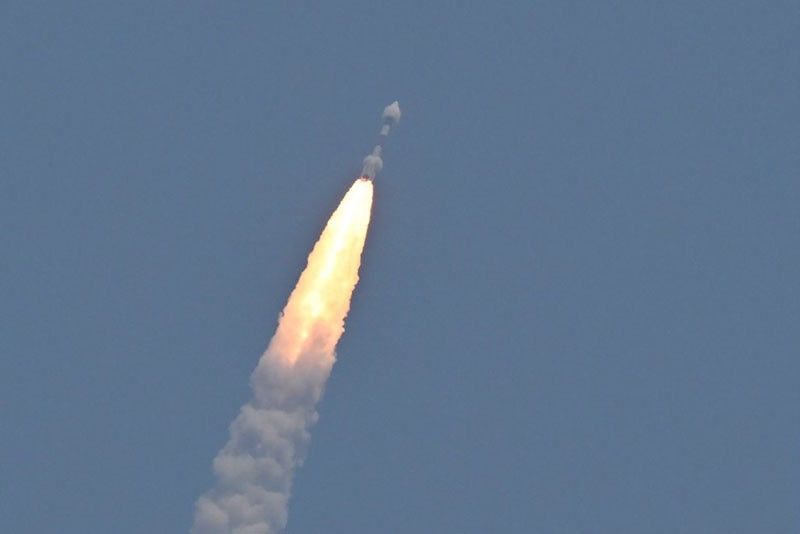Indian spacecraft heads towards center of solar system

NEW DELHI, India — India's Sun-monitoring spacecraft has crossed a landmark point on its journey to escape "the sphere of Earth's influence", its space agency said, days after the disappointment of its Moon rover failing to awaken.
The Aditya-L1 mission, which started its four-month journey towards the center of the solar system on September 2, carries instruments to observe the Sun's outermost layers.
"The spacecraft has escaped the sphere of Earth's influence," the Indian Space Research Organisation (ISRO) said in a statement late Saturday.
Aditya, named after the Hindu Sun deity, has travelled 920,000 kilometres (570,000 miles), just over half the journey's total distance.
At that point, the gravitational forces of both astronomical bodies cancel out, allowing the mission to remain in a stable halo orbit around our nearest star.
"This is the second time in succession that ISRO could send a spacecraft outside the sphere of influence of the Earth, the first time being the Mars Orbiter Mission", the agency added.
In August, India became the first country to land a craft near the largely unexplored lunar south pole, and just the fourth nation to land on the Moon.
Rover Pragyan surveyed the vicinity of its landing site but was powered down before the start of lunar night, which lasts roughly two weeks on Earth.
India had hoped to prolong the mission by reactivating the solar-powered vehicle once daylight returned to the lunar surface, but so far has been greeted by radio silence.
"It is OK if it does not wake up because the rover has done what it was expected to do," ISRO chief S. Somanath said Wednesday.
In 2014, India became the first Asian nation to put a craft into orbit around Mars, and it is slated to launch a three-day crewed mission into Earth orbit by next year.
The United States and the European Space Agency have sent numerous probes to the centre of the solar system, beginning with NASA's Pioneer programme in the 1960s.
Japan and China have both launched their own solar observatory missions into Earth orbit.
But if successful, ISRO's latest mission will be the first by any Asian nation to be placed in orbit around the Sun.
- Latest






























